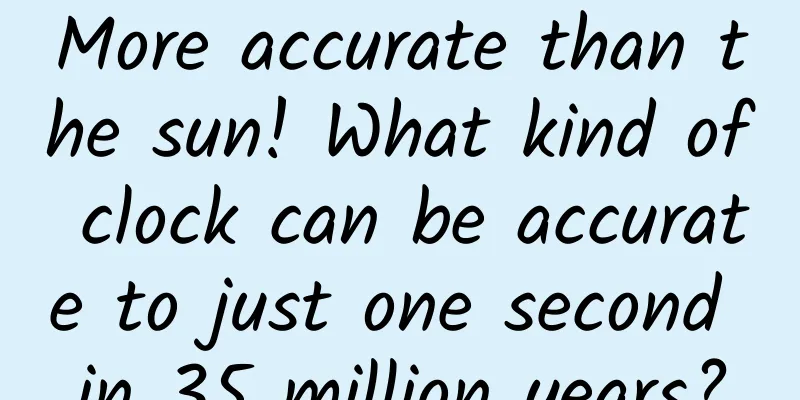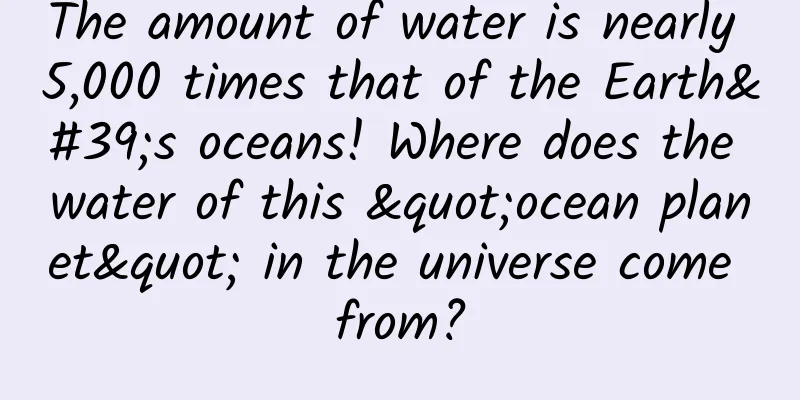More accurate than the sun! What kind of clock can be accurate to just one second in 35 million years?

|
Measuring time accurately is far more important than we think. If the timing error in a day exceeds one thousandth of a second, the communication network, transportation, and financial systems will fall into chaos; if the timing error in a day exceeds one hundred thousandth of a second, the navigation and positioning system will not be able to achieve accurate positioning. So, how does a national important device like the Beidou satellite navigation system rely on to accurately measure time? The answer is the atomic clock. Recently, Mei Ganghua, a researcher at the Institute of Precision Measurement Science and Technology Innovation of the Chinese Academy of Sciences, led a team to develop a new rubidium atomic clock, with a measured frequency stability of 9E-14 (1E-14 is one trillionth) per second and 9E-15 per hundred seconds. This is the highest short-term stability index of rubidium atomic clocks in the world. The relevant results were recently published in the international journal IEEE Transactions on Instrumentation and Measurement. Article Content Unveiling the secrets of the atomic clock From ancient times to the present, time measurement tools have been constantly updated with the development of science and technology. From sundials and hourglasses to mechanical clocks and quartz clocks, the accuracy of time measurement represents the highest level of technology in each era. As early as the 1930s, American physicist Isidor Rabi proposed the concept of atomic clocks. Soon after this concept was proposed, the world's first atomic clock was launched in the United States. Subsequently, the United States, the Soviet Union, the United Kingdom and other countries invented more accurate atomic clocks. The world's first atomic clock So, what exactly is an atomic clock? In fact, the atomic clock is a clock invented using quantum properties. It has neither pointers nor gears. Some look like a big barrel, and some look like a box. Its task is to provide accurate measurement of the time unit "second", but it cannot directly display the time. In 1967, at the 13th International Conference on Weights and Measures, people used 9192631770 cycles of cesium atomic transitions as 1 second. Since then, the atomic clock has become a popular precision timekeeping tool in the world. Why is the atomic clock called the "heart" of a navigation satellite? In fact, for the operation of navigation satellites, the more synchronized the time between the sky and the earth is, the smaller the error is, and the higher the positioning accuracy is. If the time error reaches a full second, the ranging error will reach 300,000 kilometers. The failure of the atomic clock is a disaster for navigation satellites. In 2016, three time-measuring clocks in India's first navigation satellite failed one after another, causing the Indian navigation system to be unable to operate normally. The European Galileo satellite navigation system also had a time clock failure in a satellite in orbit, resulting in a week-long inability to provide navigation services to users. Therefore, atomic clocks are crucial to the operation of navigation satellites. High-precision rubidium clock for Beidou navigation satellite In the 1990s, my country's Beidou satellite navigation system project was launched. The core technical difficulty of this project lies in the research and development of atomic clocks. In particular, the research and development of satellite-borne rubidium atomic clocks is a major problem facing Chinese researchers. Schematic diagram of Beidou satellite navigation system Rubidium atomic clocks have the advantages of small size, light weight, low power consumption, high reliability, long life and low manufacturing cost. They are currently the most widely used atomic clocks and are used in satellite navigation, communications, electricity, finance and other fields. According to Qu Yongsheng, the person in charge of rubidium clock products at the Xi'an Branch of the Fifth Academy of China Aerospace Science and Technology Corporation, the stability of rubidium clocks is directly related to the accuracy of the positioning, speed measurement and timing functions of navigation satellites. The quality and reliability of rubidium clocks directly determine the success or failure of navigation satellites, and they are very critical payload products on Beidou satellites. At that time, only the United States and Switzerland had mastered the technology of satellite-borne rubidium atomic clocks. Against this background, in 1997, Mei Ganghua led his team to start research on rubidium atomic clocks, and successively developed three generations of satellite-borne rubidium atomic clocks with complete independent intellectual property rights, which were mass-equipped on Beidou navigation satellites. It is worth mentioning that the third-generation satellite-borne rubidium atomic clock he and his team successfully developed in 2006 had a second stability of 7E-13, setting an international record for the frequency stability of rubidium atomic clocks at that time. my country's first satellite-borne rubidium atomic clock In 2020, my country's new generation BeiDou-3 global satellite navigation system was officially launched. BeiDou-3 satellites use my country's independently controllable new rubidium atomic clocks and hydrogen atomic clocks with higher stability and accuracy, which have greatly improved the performance of satellite time and frequency references. Today, the new rubidium atomic clock developed by Mei Ganghua's team has once again set an international record for frequency stability in seconds. He said that this technological breakthrough will help develop high-quality microwave oscillator technology and develop a new generation of Beidou system satellite-borne atomic clocks. It is foreseeable that with the support of increasingly accurate atomic clocks, we will be able to achieve more precise positioning, and the Beidou satellite navigation system will operate more stably. |
Recommend
Comfort you when you are unhappy, and be happy with you when you are happy... How far are we from such a robot?
Citation: When it comes to emotional robots, scie...
How to write an excellent event planning and implementation plan?
Google is in talks with Chinese internet company N...
Blizzard's path to success: exploring cross-game marketing
[[150645]] When it comes to success in the gaming...
For content-based APP, how to build a content operation framework?
Where does the content come from? This is probabl...
Will drinking water while eating cause indigestion? Don’t fall into these water drinking misunderstandings
Drinking water is a very common thing, but some p...
As one of the most important organs in the human body, do you understand your "heart"?
Everyone knows that the heart is one of the most ...
It’s been a year, why are you two leaving just now?
We mentioned before that helping rescued animals ...
It was discovered that the carbon dioxide inside Enceladus is controlled by the chemistry of the seafloor, which is more complicated than imagined!
Scientists at the Southwest Research Institute ha...
Three misunderstandings about user churn analysis. Have you made any mistakes?
User loss on a platform is inevitable, and the co...
Quark College Entrance Examination Information Service upgrades AI search capabilities to help candidates choose their preferred choices
In the 2024 college entrance examination, not onl...
How much does it cost to be an agent of Meizhou Tattoo and Embroidery Mini Program?
Is it easy to be an agent of Meizhou Tattoo and E...
How to operate a brand well? Practical skills in brand operation!
Many people in companies who are in charge of bra...
How to find a “host to promote products” so as not to lose money?
In my opinion, all businesses in China can be rou...
Changan Automobile: In December 2022, Changan Automobile's new energy vehicle sales reached 45,200 units, a year-on-year increase of 202.21%
According to recent news, Changan Automobile rele...









